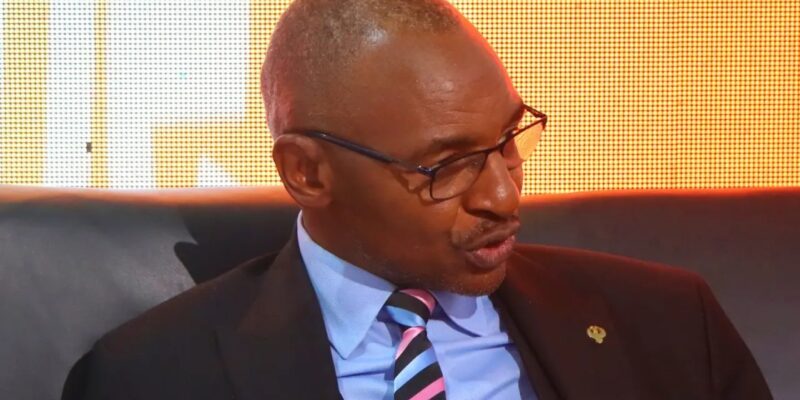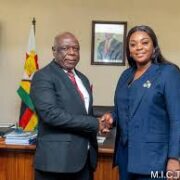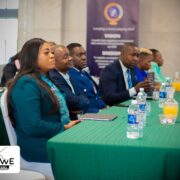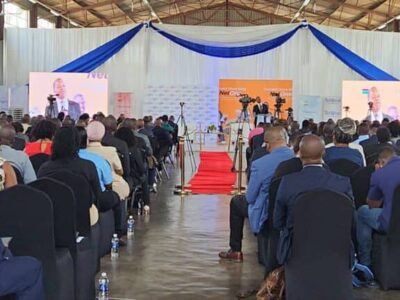The NetOne Group CEO, Engineer Raphael Mushanawani who was recently arrested and released from police cells on bail last Thursday by the Magistrate court, has shown up to work last Friday and also Today , Monday, in a back to normal style, TechnoMag can exclusively reveal.
Mushanawani, a soft spoken executive has all but ignored the noise in the cockpit, showing up to work this morning like nothing happened, with high level sources claiming that he has even called his perceived adversaries to focus on the work ahead and transforming NetOne.
A legal analysts has also weighed in on Mushanawani’s return stating that constitutionally, he is innocent until proven guilty and him showing up to work does not violate any law as his bail conditions are being followed. The conditions clearly stated that he was free to resume his daily life but not to interfere with state witnesses.
On interference with witnesses, it is important to recognize that, since the identities of the witnesses are not specified, the Chief Executive Officer (CEO) could inadvertently encounter them anywhere, such as in public places like town. Because the witnesses are not known or identified, it is practically impossible to ensure that the CEO would not come across them even outside of the workplace.
More so in terms of our labor laws the NetOne Board has first to investigate on their own if there is an act of misconduct warranting suspension, and those investigations are done because of a board resolution if the board believes there is a misconduct committed.
As it stands the board has not sat or made such a decision and clearly there is no legal basis to bar the Chief Executive Officer from attending work.
A legal expert weighed in. :
ZACC detained and arrested the CEO on Monday, the 29th of September 2025 on allegations of defrauding NetOne of USD1,2 million by procuring a system without ExCo and the Board’s knowledge. Witnesses and complainant in this matter remain unknown and unestablished.
No internal labor processes against the CEO have been started or sought.
In terms of the Constitution of Zimbabwe, section 70 it is provided as follows:
70 Rights of accused persons
(1) Any person accused of an offence has the following rights
(a) to be presumed innocent until proved guilty;
4.2.A person is presumed innocent until convicted.
In that regard, what the Chief Executive Officer is facing are allegations. The decision of the board regarding the Chief Executive Officer is not premised on the fact that he was arrested or face allegations. It must be based on its factual enquiry of the issues and its appreciation of its own systems. In as far as the labor relations are concerned, the Group CEO remains the Chief Executive
Officer of the organization and is entitled to assume his responsibilities and do his day-to-day duties in the office as normal.
In addition, the conditions do not indicate that the Chief Executive Officer is prevented from attending work
“We believe the issue of witness interference lacks detail, as it does not specify who the witnesses are or their locations; thus, the term “witness” could refer to anyone, including individuals in their own homes.
Hence clearly the bail condition of not interfering with witnesses surely cannot be in its form a basis of denying the Chief Executive Officer access to the workplace. It is important to recognize that, since the identities of the witnesses are not specified, the
Chief Executive Officer (CEO) could inadvertently encounter them anywhere, such as in
public places like town.
Without clear and specific information about the witnesses and their whereabouts, enforcing this condition as a basis for barring workplace attendance would be unreasonable.
In that regard, you cannot cite that as the reason why the CEO must not report to work.” Said the legal opinion.
As it stands the board has not sat or has not made such a decision and clearly there is no legal basis to bar the Chief Executive Officer from attending work.
Given the current circumstances, it is not appropriate to cite the bail condition regarding witness interference as justification for preventing the Chief Executive Officer from reporting to work.
In this case it is then natural for the CEO to be permitted to carry out all regular duties without interruption. This includes receiving their full salary and benefits, as there is presently no substantiated reason to prevent their attendance or performance at work, while t’s the Board’s responsibility to independently verify allegations.














Comments